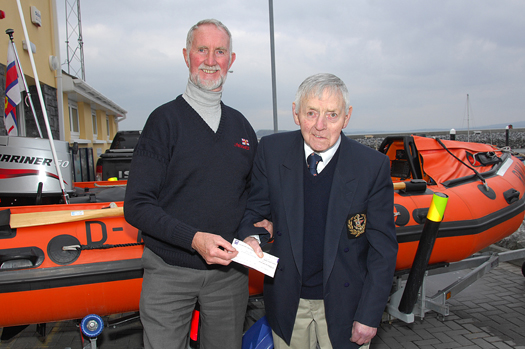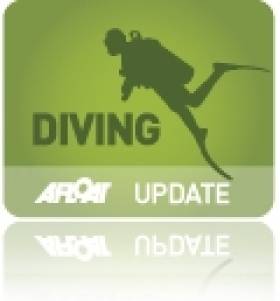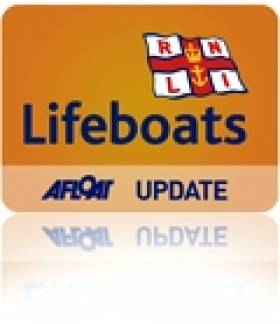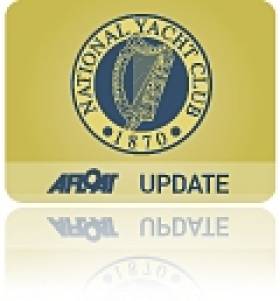Displaying items by tag: Funeral
Body of Drowned Diver Returned to Family
The body of the Irish student backpacker who drowned while scuba diving in Australia recently was returned to her family yesterday.
As previously reported on Afloat.ie, 23-year-old Elaine Morrow from Ballintra, Co Donegal, had been on a beginner's diving course off the coast of Queensland on 18 April when she became separated from her group and failed to surface.
The Irish Independent reports that her funeral will take place tomorrow afternoon, after a service at Drumholm Parish Church of Ireland in Ballintra.
Donations Vital for RNLI Service
Charlie McGibney (pictured below) presented a cheque recently to David Buttimer, chairman of the Fenit RNLI lifeboat fund-raising committee, for donations received at the funeral of his loving wife Ita McGibney.
It was Ita's request that donations made during her funeral be presented by her husband Charlie to Fenit RNLI Lifeboat Station, based at Fenit Harbour in Co Kerry.
The RNLI (Royal National Lifeboat Institution) is a registered charity and depends on voluntary donations and legacies to maintain its rescue service.
The death of Ita McGibney (neé Clonan) of Tieraclea Park, Tarbert and formerly of Dumcondra, Dublin, occurred on 20 February 20 2011. Ita is survived by her husband Charlie; sons Tom, George, Gerard, John, Raymond, Damien, Rory and Simon; daughter Dr Carol (Pierce); brother Pat; sisters Mary and Ann; as well as in-laws, grandchildren, great-grandchildren, nephews, nieces and friends.

Photograph by Digimac Photography, Fenit































































